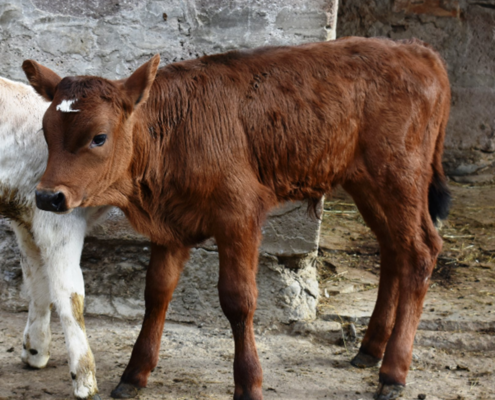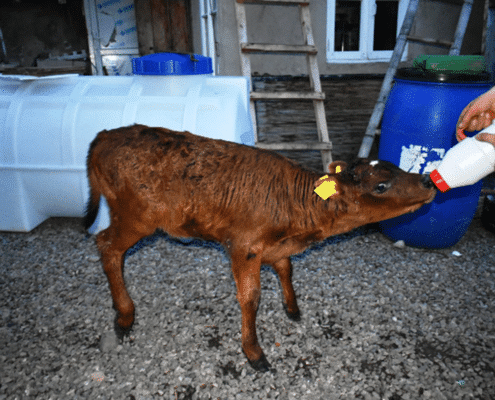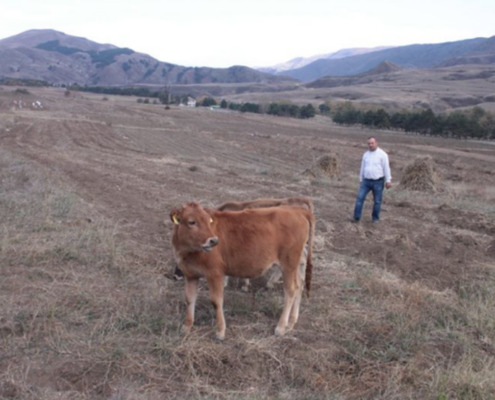It is currently the full period for the reproduction of dairy cows in Georgia. A look back at the artificial insemination service set up since 2015 by the GBDC-AO and Ertoba, accompanied by Fert.
In Georgia, the dairy farms are mainly composed of cows of local breeds (Caucasian brown) sometimes crossed with Swiss Brown. They have qualities of adaptation to mountain areas and calving ease, but unfortunately, their annual milk production is not very important. To increase the milk potential of their herd, the Ertoba association’s breeders wanted to have an artificial insemination service.
Since 2015, the GBDC-AO has been offering dairy farmers in the Samtskhe-Javakheti region a paid insemination service that includes support at every stage of the process. In partnership with Coopex Montbéliard, a French insemination cooperative, three types of seeds from French farms are proposed: Montbeliard, Abondance and Tarentaise.
Since the launch of this service, 115 cows have been inseminated and 74 calves have been born (a success rate of 64%). The results were quickly noticed, with the inseminated cows producing 1,100 liters of milk more per year than the local breeds.
In spite of this, Ertoba and the GBDC have noticed a lack of interest in artificial insemination on the part of dairy farmers in recent months. A meeting at the beginning of 2021 identified the reasons for this:
- Lack of hindsight and information on the effects of artificial insemination. Farmers doubt the capacity of their cows to give birth to larger calves and the real increase in milk production.
- Non-value of male calves resulting from insemination: When an inseminated cow gives birth to a male calf, it is sold at the same price as calves of the local breed and insemination does not bring any commercial added value.
- The lack of control of the dairy farmers to detect heat: in spring, the herds are driven in common pasture, accompanied by the bulls. Instead of isolating the cows in heat so that they can be inseminated, the cowherds let the cows be mounted naturally by the bull. Lack of vigilance on heat detection also leads to delayed pregnancy start.
- The poor general condition of the cows: farmers do not pay attention to the good feeding of the cows to be inseminated.





